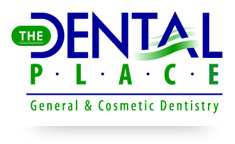Sometimes, your natural teeth can become harmful to the health of your smile, making extraction a necessary step in keeping your mouth safe. If you have received a diagnosis that requires the extraction of some or all of your teeth, talk to a trusted dentist about your options in prosthodontic repair.
If you have lost part of your smile, take some time to speak with a dentist about the possibility of a denture solution. These are prosthetics that take the place of your natural teeth after they have been lost, and they are custom crafted to suit your dental needs. Give your local Grand Prairie, TX dentist a call at (972) 264-5795 to discuss your prosthodontic possibilities, including a beautiful new denture solution that looks natural!
Denture Technology Is Better Than Ever
When you think about dentures, you might envision messy adhesives and a failing connection. But the technology behind full and partial dentures has come a long way in the past few decades, allowing for a more secure connection. In fact, one of the most sought-after procedures in this country right now is the placement of an implant-retained denture solution. Talk to our team to learn more about the exciting new developments in denture technology.
From Our Blog:
The leading cause of tooth loss is gum disease. This infection of gingival (gum) tissue can become severe without proper oral hygiene and professional treatment. When gum disease advances, tartar will accumulate below the gum line and along the roots of teeth. Over time, this accumulation of tartar will separate teeth from their support structures (gums and bone) causing them to loosen and eventually fall out. Tooth loss is caused by other factors, too such as extensive decay and traumatic injury to the mouth. Read More…
Although teeth are meant to last a lifetime, many patients begin losing teeth in adulthood for a variety of reasons. As we age, our teeth become weaker and more vulnerable to injury and disease. Our dentist understands that tooth loss happens and can negatively affect a patient’s overall wellbeing and oral health. Since tooth loss has far-reaching effects on a patient’s quality of life, our team is proud to offer a variety of custom made dentures to help restore oral function and improve quality of life. Read More…
There is not an expiration date issued for the duration of any dental work. Some patients may enjoy a longer life for their dentures. Many things can impact the longevity of dental work: the overall health of the patient at the time of treatment, the individual’s dental health, and the care the patient extends to their oral dentition and restoration.
Your dentist will consult with you and provide your best options to deal with your tooth loss. When dentures are advised, there are several considerations. How many teeth are being replaced? Will a partial or complete denture be required?
A partial denture can be used when the patient has lost just one or a couple of teeth. A partial denture can be made to affix to the adjacent teeth, which is called a removable partial denture. When the patient wants to enjoy a more permanent solution to tooth loss, an implant supported prosthesis can be placed. Read More…

